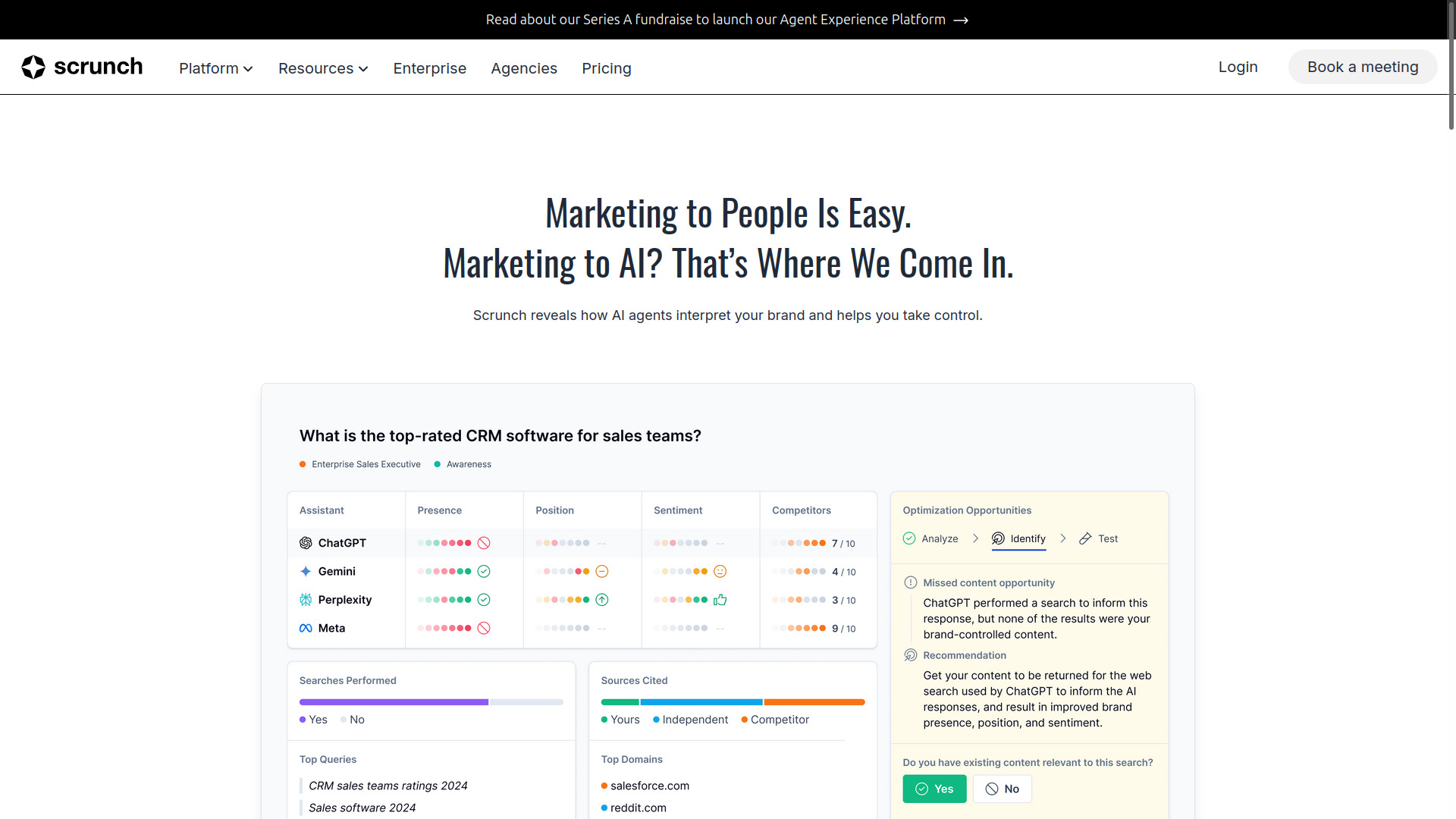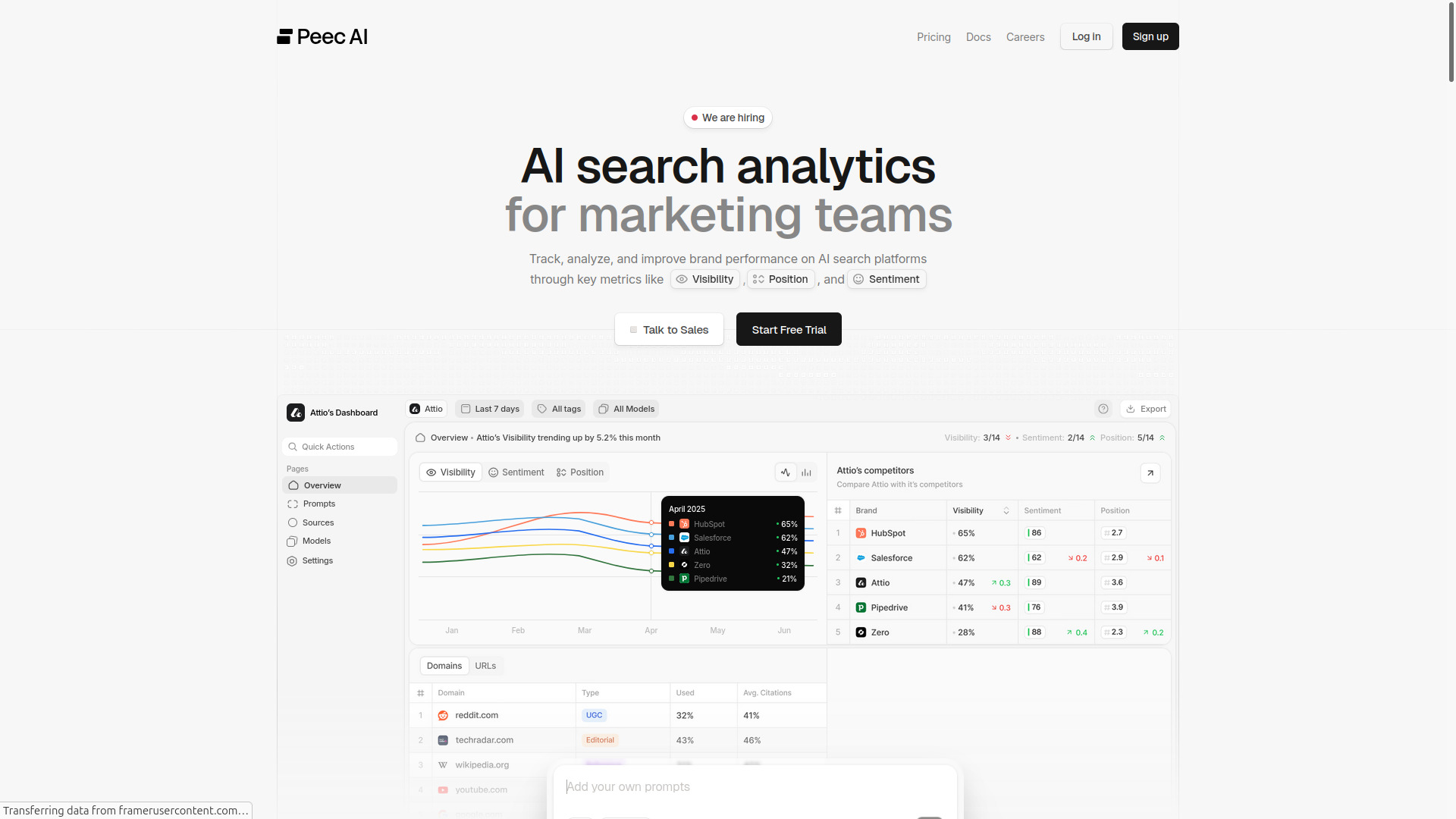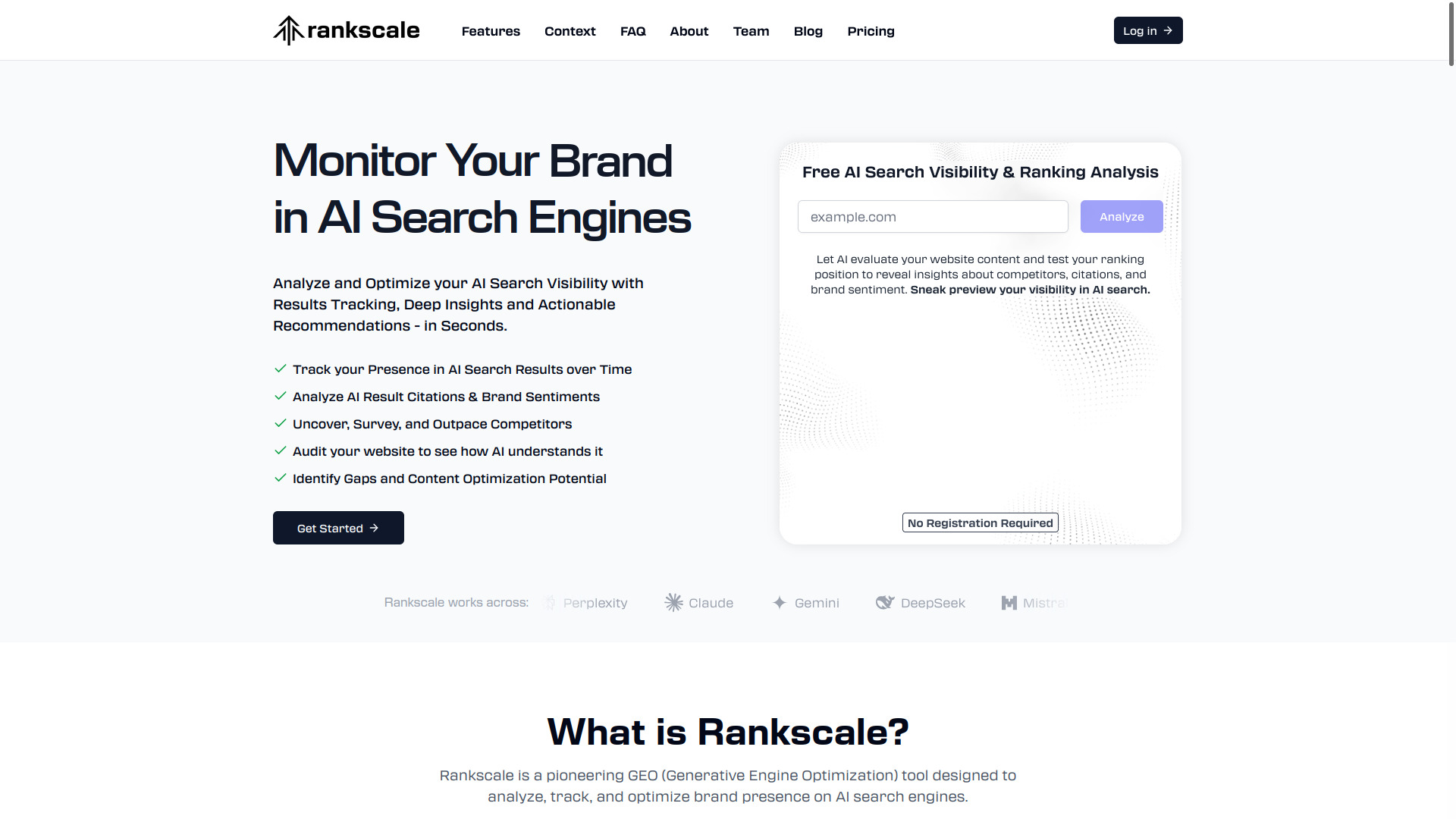The landscape of online discovery is rapidly transforming. With the rise of advanced AI search platforms such as ChatGPT, Google AI Overviews, Perplexity, Gemini, Microsoft Copilot, Claude, Grok, Meta AI, and DeepSeek, consumers are increasingly receiving direct answers and recommendations rather than traditional search results. This paradigm shift presents a significant challenge for brands and marketers who are often left wondering how visible their content and brand are in these new AI search experiences. To address this, a new generation of sophisticated tools is emerging, dedicated to tracking and optimising brand performance in the age of artificial intelligence.
The Imperative of Generative Engine Optimisation (GEO)
The future of search is here, and it’s deeply intertwined with Generative Engine Optimisation (GEO). GEO refers to the practice of optimising content and brand presence for AI-powered search platforms and large language models (LLMs). Traditional Search Engine Optimisation (SEO), primarily focused on keywords and backlinks, is no longer sufficient as AI evaluates and displays content differently. Customers are now "ChatGPTing" and "Perplexity-ing," seeking answers and brand evaluations directly from AI.
The urgency for GEO is underscored by predictions such as Gartner's forecast of a 50% decline in organic traffic by 2028. In this evolving environment, tools for tracking AI performance become indispensable. They enable brands to monitor key metrics like visibility, position, and sentiment across various AI platforms. By tracking brand mentions, website citations, and share of voice, these tools provide the crucial insights needed to craft AI-optimised content, identify gaps in information, and maintain a competitive edge. Ultimately, GEO is about ensuring your brand is not just seen, but also cited, trusted, and positioned as an authority by the world's most influential AI models. An early mover advantage exists for businesses adopting GEO now, positioning them as leaders as AI search grows. Unlike SEO, which focuses on ranking, GEO is two-dimensional, valuing both being mentioned and how you are mentioned.
Leading Tools in AI Performance Tracking
Several innovative platforms are helping businesses navigate this new era of AI search. Below, we explore key players like Profound, Scrunch AI, AthenaHQ, Peec.ai and Rankscale, which you can use to optimize your Squarespace website for AI powered search (GEO).
Profound (New York)
Profound is an enterprise-level Generative Engine Optimisation (GEO) platform designed for brands serious about their AI visibility. It measures how a brand appears in AI-generated answers across a wide array of platforms, including Perplexity, ChatGPT, Claude, Google AI Overviews, Grok, Microsoft Copilot, Meta AI, and DeepSeek. The tool helps brands uncover how often and how they are mentioned, understand sentiment, track citations, explore AI query trends, and analyse how AI crawlers interact with their website.
Scrunch AI (London)
Scrunch AI is a platform designed to help brands track, analyse, and optimise their appearance in AI-generated answers across popular tools like ChatGPT, Gemini, and Perplexity. It aims to reveal how AI agents interpret a brand and enable brands to take control of their narrative. The platform delivers four key capabilities: monitoring, knowledge hub, insights, and journey mapping.
AthenaHQ (San Francisco)
AthenaHQ is a Generative Engine Optimization (GEO) alternative, built by founders with experience at Google Search and DeepMind. It is designed to help brands appear in AI-generated answers across platforms such as ChatGPT, Gemini, Perplexity, Claude, DeepSeek, Google AI Overviews, Copilot, and Grok. It is best suited for enterprise and mid-market brands seeking deep AI visibility insights, sentiment analysis, content gap detection, and prompt tracking.
Peec.ai (Berlin)
Peec.ai is an AI search analytics tool specifically for marketing teams, focusing on how brands are referenced in AI-powered search across platforms like ChatGPT, Perplexity, Claude, Gemini, and Google AI Overviews. It conducts daily prompts to track brand mentions and citations, providing a clear visibility score over time.
Rankscale (Vienna)
Rankscale is an alternative designed to analyse, track, and optimise brand presence in AI search engines. It is ideal for small businesses or solopreneurs with limited budgets or technical resources. It provides a visual dashboard to monitor how a brand or chosen keywords appear in generative AI results across platforms like ChatGPT, Gemini, Google SGE, and Perplexity.
Conclusion
The shift towards AI-powered search represents a monumental change, making Generative Engine Optimisation (GEO) a critical strategy for brands worldwide. Tools like Profound, Scrunch AI, AthenaHQ, Peec.ai and Rankscale provide essential capabilities for tracking AI performance. They offer vital insights into brand and website visibility, position, sentiment, and citation analysis across a multitude of AI platforms, which are now integral to consumer discovery.
While these tools excel in monitoring and analytics, many primarily focus on reporting, leaving direct content creation and optimisation to external workflows. However, by leveraging the comprehensive data and actionable insights these platforms provide, brands can proactively adapt their strategies, refine content, and enhance their digital presence in an increasingly AI-driven world. Understanding and utilising these specialised tools is no longer an option but a necessity for any brand aiming to thrive in the new era of AI search. For a typical Squarespace website, reasonably priced tools like Peec.ai and Rankscale are great options to get this process started.
Q&A
Generative AI is rapidly reshaping how consumers discover and evaluate brands. Gartner predicts that 50% of traditional search traffic will be replaced by generative AI by 2028. As AI-powered search experiences become more prevalent, brands that fail to optimise for GEO risk losing significant visibility and customer engagement. An early mover advantage exists for GEO, similar to how early SEO adopters gained market leadership. By proactively shaping how AI perceives and presents their brand, companies can lead conversations, capture demand, and drive higher-quality traffic, as demonstrated by case studies showing significant increases in leads and ROI from AI search.
GEO platforms track several critical metrics to provide insights into a brand's performance in AI search:
- Visibility: The frequency with which a brand is mentioned in AI-generated responses.
- Position: The prominence or ranking of a brand within AI search results, indicating how early or favourably it appears.
- Sentiment: The perception of a brand by AI, assessing whether mentions are positive, negative, or neutral.
- Prompt Volume: Tracking the prompts or queries that are most relevant to a brand and understanding their popularity.
- Website Citations: Identifying which external websites and content pieces are referenced by AI models when discussing a brand.
- Share of Voice: How a brand's mentions compare to those of its competitors within AI responses.
GEO tools aim to provide comprehensive coverage across the leading and emerging generative AI search platforms. Commonly monitored platforms include:
- ChatGPT
- Perplexity
- Google AI Overviews (formerly Google SGE)
- Google AI Mode
- Gemini (Google's AI model)
- Claude
- Microsoft Copilot
- Grok
- DeepSeek
- Meta AI
Some platforms also offer monitoring for additional, niche models upon request.
Based on insights from GEO platforms, brands can take several strategic actions to improve their AI search presence:
- Content Optimisation: Identify content gaps or areas where AI misunderstands the brand, and create or update content specifically for AI readability and citation. This includes optimising for structured data and quality.
- Competitor Analysis: Understand how rivals are being mentioned and cited, allowing for strategic adjustments to outperform them.
- Source Intelligence: Pinpoint the websites and sources that AI frequently cites, then engage with or contribute to those influential platforms.
- Brand Protection: Address misinformation or negative sentiment swiftly to maintain a positive brand image in AI responses.
- Prompt Optimisation: Refine prompts and content to align with what users are actually asking AI, improving relevance and visibility.
- Technical SEO for AI: Ensure websites are technically optimised for AI crawlers and indexing, similar to traditional SEO but with an AI-first approach.
While many GEO platforms offer robust, enterprise-grade features and support, making them ideal for large organisations (e.g., Profound, AthenaHQ), there are also more affordable and accessible options tailored for small businesses and startups. Tools like Rankscale and Otterly.AI offer budget-friendly plans starting from £20-£25 per month, providing essential AI search tracking and monitoring. This indicates that GEO is becoming a necessity for businesses of all sizes, with a range of tools available to match different budgets and needs.





